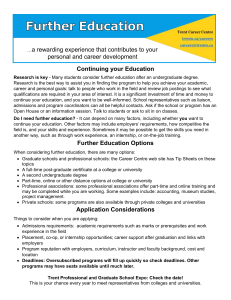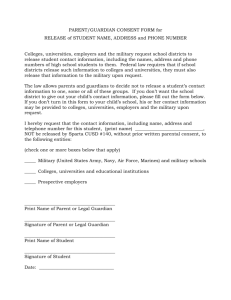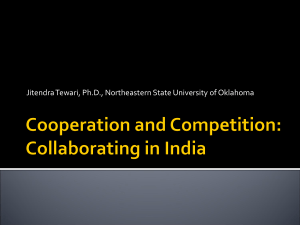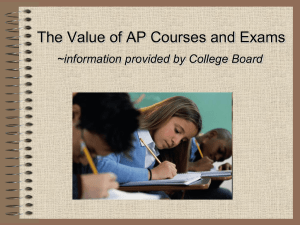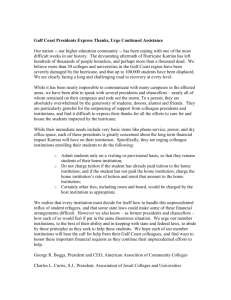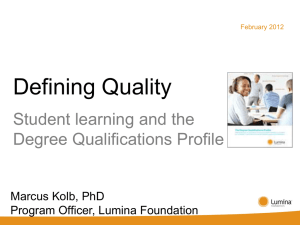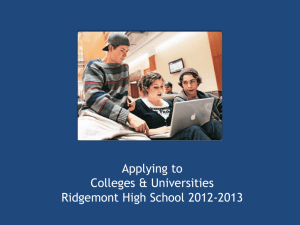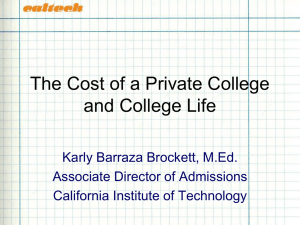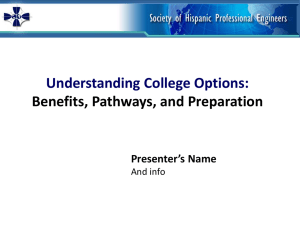Further Education - Trent University
advertisement
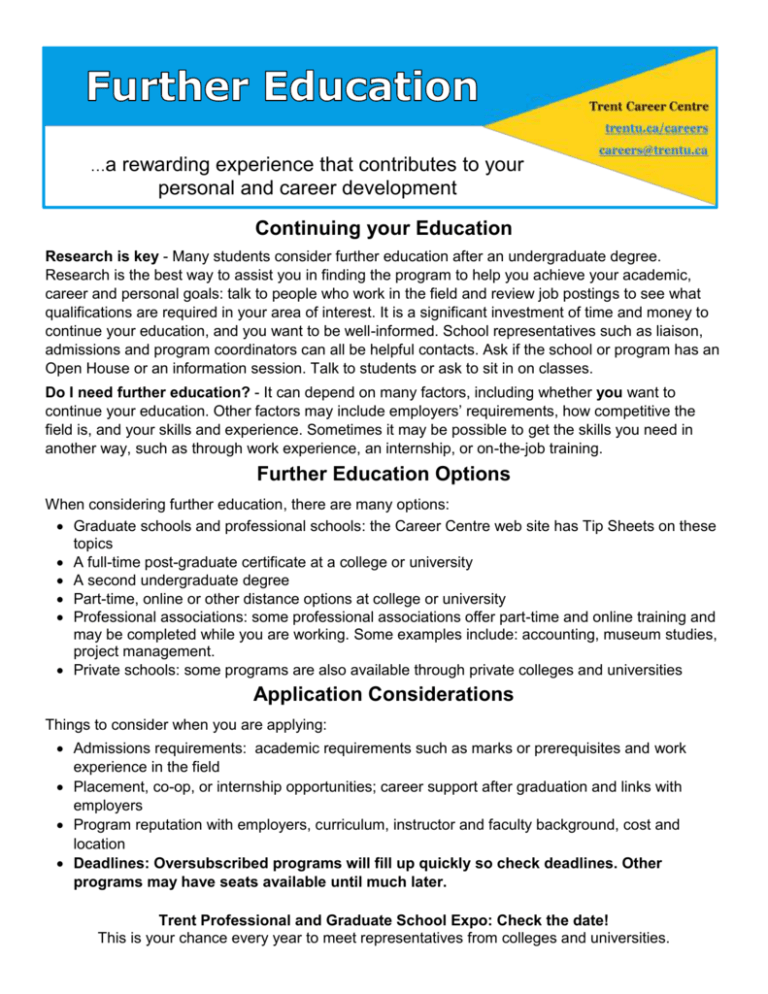
…a rewarding experience that contributes to your personal and career development Continuing your Education Research is key - Many students consider further education after an undergraduate degree. Research is the best way to assist you in finding the program to help you achieve your academic, career and personal goals: talk to people who work in the field and review job postings to see what qualifications are required in your area of interest. It is a significant investment of time and money to continue your education, and you want to be well-informed. School representatives such as liaison, admissions and program coordinators can all be helpful contacts. Ask if the school or program has an Open House or an information session. Talk to students or ask to sit in on classes. Do I need further education? - It can depend on many factors, including whether you want to continue your education. Other factors may include employers’ requirements, how competitive the field is, and your skills and experience. Sometimes it may be possible to get the skills you need in another way, such as through work experience, an internship, or on-the-job training. Further Education Options When considering further education, there are many options: Graduate schools and professional schools: the Career Centre web site has Tip Sheets on these topics A full-time post-graduate certificate at a college or university A second undergraduate degree Part-time, online or other distance options at college or university Professional associations: some professional associations offer part-time and online training and may be completed while you are working. Some examples include: accounting, museum studies, project management. Private schools: some programs are also available through private colleges and universities Application Considerations Things to consider when you are applying: Admissions requirements: academic requirements such as marks or prerequisites and work experience in the field Placement, co-op, or internship opportunities; career support after graduation and links with employers Program reputation with employers, curriculum, instructor and faculty background, cost and location Deadlines: Oversubscribed programs will fill up quickly so check deadlines. Other programs may have seats available until much later. Trent Professional and Graduate School Expo: Check the date! This is your chance every year to meet representatives from colleges and universities. Useful Resources 1. Universities Canada Universities Canada represent 97 public and private not-for-profit universities and university degree-level colleges. It provides updated program information for Canadian universities and programs each year. Visit http://www.univcan.ca/ for more information. Resource includes: The online database of university study programs can help you determine where to study at a Canadian university and find the study program that most interests you. Scholarships & International Programs. 2. School Finder Find information on more than 1,700 universities, colleges and career colleges in Canada, including admission requirements, costs, programs and contact details. For more details visit schoolfinder.com. Resource includes: Undergraduate - Universities, University Colleges, Colleges, Career Colleges, Medical and Health Graduate Other: Language Schools, Online Learning Study Abroad - Universities and colleges outside Canada 3. CanLearn CanLearn is a post-secondary education resource that provides information and services on what and where to study and how to cover the costs. Visit CanLearn.ca for more information Resource includes: Search undergraduate schools & programs Search post graduate programs and schools Information on student loans, grants & scholarships 4. Ontario Colleges Find a college near you in Ontario, visit ontariocolleges.ca Resource includes: Certificate Programs Diploma Programs Applied Degree Programs Collaborative/Joint Degree Programs Graduate Certificate Programs Co-op Placement Programs Apprenticeship Programs Also Info on Money Matters: Tuition fees summary, budgeting advice, financial assistance, bursaries & grants, scholarships & awards Online opportunities: many schools now have courses or whole programs online. Search for them by using the resources above, by visiting individual schools’ web site, or by using the following lists of online programs: Canadian Virtual University: cvu.ca Ontario Learn: ontariolearn.com
